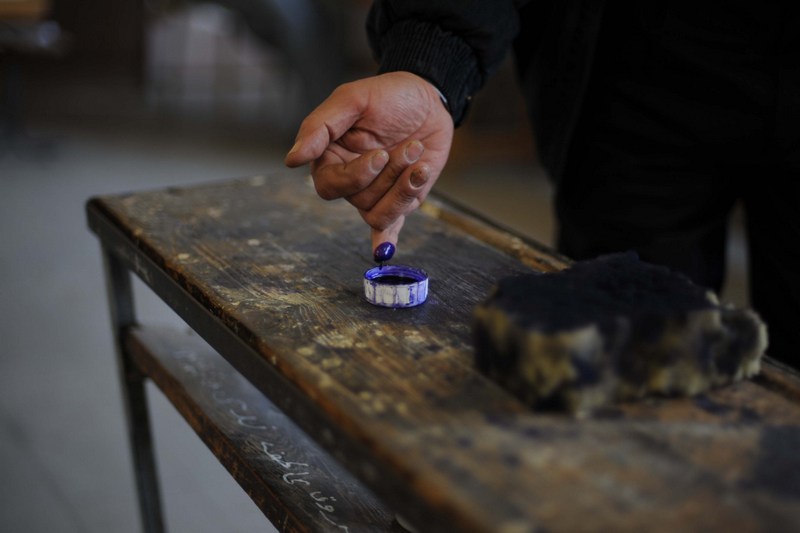CAIRO: Orascom Construction Industries (OCI), Egypt’s biggest listed builder, will be forced to seek more work at home and in Gulf Arab states as economic and political tensions make its Algerian business riskier.
Algeria accounted for about a fifth of OCI’s unfinished construction at year-end, but officials are less likely to grant it more contracts as they tussle with its sister firm Orascom Telecom (OT) over back taxes and an attempt to sell its operator Djezzy.
OCI, a construction-focused conglomerate with wide interests in fertilizer, is still expected to post higher first-quarter profits on May 27 on rising ammonia prices and regional spending on infrastructure.
But OT’s troubles have sparked worries Algeria may eventually try to pressure OCI and have made the more-than-$2 billion ammonia and urea factory it is building in a joint venture with Algeria’s state-owned Sonatrach look riskier.
"On paper, everything looks stable. The risk profile of OCI is totally different than that of OT. However, in practice, the environment is very risky," said Ahmed Shams, an analyst at investment bank EFG-Hermes.
By 0937 GMT, shares in OCI had slipped nearly 17 percent since April 28, the day Algeria said it would block an OT deal to sell Djezzy to South Africa’s MTN. The main Egyptian index has fallen about 20 percent over the same period.
Shares in the builder gained 78 percent in 2009, dwarfing a 35 percent rise in the benchmark. Shams and other analysts attribute the narrowing OCI outperformance to the higher risk of its Algerian investments in light of OT’s woes.
OCI is run by Nassef Sawiris, the youngest of three billionaire brothers from an influential Egyptian Coptic Christian family. Nassef’s older brother Naguib runs OT.
Economic nationalism
Investment analysts say there is a growing mood of economic nationalism in Algeria, which is now trying to take control of Djezzy after blocking a potential deal to sell some or all of OT’s assets to South Africa’s MTN.
In an indication of the nationalistic mood, the union at ArcelorMittal’s Algerian steel factory said on Thursday that workers would strike unless the state took a controlling stake or the firm was nationalized.
OCI is particularly vulnerable both because it is Egyptian, and because it is part of the Orascom family.
The Orascom brand has suffered in Algeria since November, when clashes between Algerian and Egyptian soccer fans over a tense World Cup qualifying match sparked a diplomatic row between the two countries.
Angry fans trashed the headquarters of OT’s Algerian unit Djezzy and dozens of its shops in the Algerian capital. The mobile operator lost over 100,000 Algerian subscribers in the three months to end-December.
OCI’s Nassef Sawiris had already offended Algeria when he sold his cement operations there to France’s Lafarge in 2008. Algeria has fraught relations with its former colonial ruler and officials felt they should have been consulted.
"An Egyptian contracting image is not what you want to have there right now," said Beltone analyst Omar Taha.
Analysts expect OCI to respond to such worries by shifting its business toward Egypt and Gulf Arab countries which are pouring billions of dollars of economic stimulus money into infrastructure projects.
"In all those countries there tends to be stuff going on, and they’ve been bidding for a lot of projects, actually, so they should be fine," Credit Suisse analyst Hans Zayed said.
OCI executives, who say business is proceeding as usual in Algeria, have quietly stopped listing their North African neighbor alongside Egypt, Qatar and Abu Dhabi as a main market for new construction contracts, Zayed said.
Pressure
It could be much harder for OCI to recover lost revenue should Algeria decide to ratchet up pressure on it through the Sonatrach joint venture fertilizer plant, due to open in 2011.
The project has been untroubled so far. Its debt is denominated in Algerian dinars and funded by Algerian banks, which might dissuade authorities from interfering, analysts say.
But should Algeria choose to squeeze OCI, many see the plant as the most likely route. It could jack up the prices set by the current contract, which provides for natural gas supply to OCI at rates far below global ones, for instance, or simply push OCI out.
These moves are unlikely, however, because Algeria would have a hard time finding a qualified fertilizer-maker willing to replace OCI and it would be hard to impose new fees on the venture without hurting its own profits.
The bigger risk is that Algeria could try to hinder OCI in its efforts to repatriate profits once the factory is running. Analysts say contract terms that obligate OCI to reinvest some of its profits in Algeria leave room for manipulation.
"OCI will be very profitable in this country, and these profits are assumed by the market to be repatriated at the consolidated level," Shams said.
"If the profits are locked into Algeria, this will be too bad for OCI."


